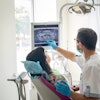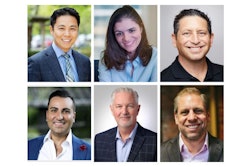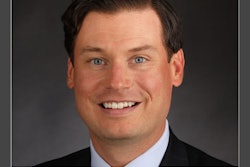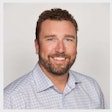When small and midmarket dental groups gather in San Diego for the ADSO Next Level Conference November 5-7, 2025, they’ll find an event built around one central idea: helping doctor-owners, executives, and operations leaders move from where they are to where they want to be.
“This meeting is about connectivity,” said Andrew Smith, CEO of the Association of Dental Support Organizations (ADSO). “Leaders of groups with two to 75 locations want to meet fellow executives, learn best practices, and understand how to get from Point A to Point B. Next Level is designed to make that happen.”
From dental scaling ideas to implementation
The ADSO expects about 300 attendees this year, representing one of the most dynamic segments in dentistry: fast-growing DSOs and dental group practices navigating the leap from small to enterprise scale.
 Andrew Smith, CEO of ADSO.Beth Gaddis
Andrew Smith, CEO of ADSO.Beth Gaddis
Smith said Next Level’s content intentionally emphasizes execution over abstraction.
“For example, it’s not about why AI is great,” he explained. “It’s about how you can implement it and scale it. That’s where people are looking to connect, learn, and do better.”
Breakout sessions will explore how operations leaders can apply technology, data, and management systems to improve clinical efficiency, elevate the patient experience, and streamline revenue operations. Networking receptions and roundtables will pair executives and clinicians who share similar growth trajectories.
Technology, networking, and investor meetings
Demias Pegues is the CEO of MyOrthodontist NC, a dental group with 14 practices. He attended the conference last year and is returning this year.
 Demias Pegues.
Demias Pegues.
“Along with top-notch networking, great content, and learning about the latest in dental technology, we attended the ADSO Next Level last year to also meet with investors. We were at the beginning stages of a sale process and were able to meet with six interested parties.
“This year, I’m attending ADSO once again for the networking and content as well as to talk to industry partners and vendors to get advice on the next step in our journey to fully automate our RCM process,” Pegues said.
Real-world issues for growing DSOs
According to Smith, the challenges facing smaller and midsize DSOs remain strikingly consistent across markets.
“The No. 1 issue is revenue cycle management,” he said. “That’s a major quagmire for a lot of groups. Secondly, the focus is on best practices to increase treatment acceptance. And once you have more than five offices, the question becomes, 'How do you integrate systems and become more efficient?' It’s all about making the office more efficient and able to grow.”
Those operational pain points -- collections, case acceptance, and system integration -- will be addressed head-on in the conference curriculum. Expert-led panels will walk through common RCM bottlenecks and solutions, and DSO leaders will highlight proven approaches to centralized billing, scheduling, and technology alignment.
A broader policy perspective
While the event’s focus is tactical, the ADSO continues to advance policy initiatives that directly affect its members’ ability to attract talent and expand access to care. One of the organization’s top priorities remains licensure portability through the Dentist and Dental Hygienist Compact.
The compact, backed by the ADSO, allows licensed dental professionals to practice across state lines without obtaining a new license in each state.
“It helps address workforce shortages by enabling dentists and hygienists to relocate or provide care in high-need areas more efficiently,” Smith said. “It reduces administrative burdens and improves access to care, especially in underserved communities.”
Over the past two years, the ADSO has worked with member groups, state boards, and policymakers to push the compact forward. To date, 12 states have enacted the legislation, and the agreement is expected to go live in early 2026.
“The compact maintains state standards while streamlining mobility for qualified professionals,” Smith added. “That’s a win for the profession and for patients.”
Navigating policy headwinds
At the same time, Smith acknowledged new legislative challenges that could have far-reaching implications for DSOs. In July 2025, President Donald Trump signed the One Big Beautiful Bill Act, a broad fiscal package that includes deep cuts to federal healthcare spending, including Medicaid.
While the legislation’s stated goal is cost control, its provisions introduce work requirements for Medicaid eligibility, increase income verification demands, and impose new cost-sharing on enrollees.
“For DSOs and the patients they serve, that’s significant,” Smith said. “These changes will likely reduce Medicaid enrollment nationwide, disproportionately affecting low-income families, children, and seniors who already face barriers to oral healthcare.”
Fewer eligible patients and ongoing reimbursement uncertainty could force some providers to reduce hours, limit services, or withdraw from high-need areas altogether.
“That compounds an already fragile dental safety net, especially in rural and low-income urban regions,” he said.
To mitigate those risks, the ADSO is coordinating closely with the ADA and other stakeholder groups. “We’re working together on how to maintain access in the face of these policy shifts,” Smith noted.
Community, collaboration, and next steps
For Smith, that kind of collaboration -- between organizations, between leaders, and between peers -- is exactly what the ADSO Next Level Conference aims to foster.
“Midmarket DSOs are where so much of the innovation in our industry happens,” he said. “They’re agile enough to experiment with new technologies but large enough to scale what works. Bringing those leaders together in one place accelerates progress for everyone.”
Attendees can expect to leave San Diego with actionable insights, new professional relationships, and a clearer understanding of how to navigate an evolving dental landscape.
“Our members tell us they want less theory and more practical solutions,” Smith said. “Next Level is designed to give them both the tools and the confidence to execute.”
Beth Gaddis is the editor in chief at Planet DDS, a dental technology company specializing in cloud-based practice management systems, digital imaging, and dental marketing services. Previously, Gaddis was the marketing director for two large dental service organizations. Prior to entering the dental industry, Gaddis was a journalist for 16 years in a variety of roles, including as a TV news producer at the CBS affiliate in Boston. You can connect with Gaddis on LinkedIn.
The comments and observations expressed herein do not necessarily reflect the opinions of DrBicuspid.com, nor should they be construed as an endorsement or admonishment of any particular idea, vendor, or organization.




















